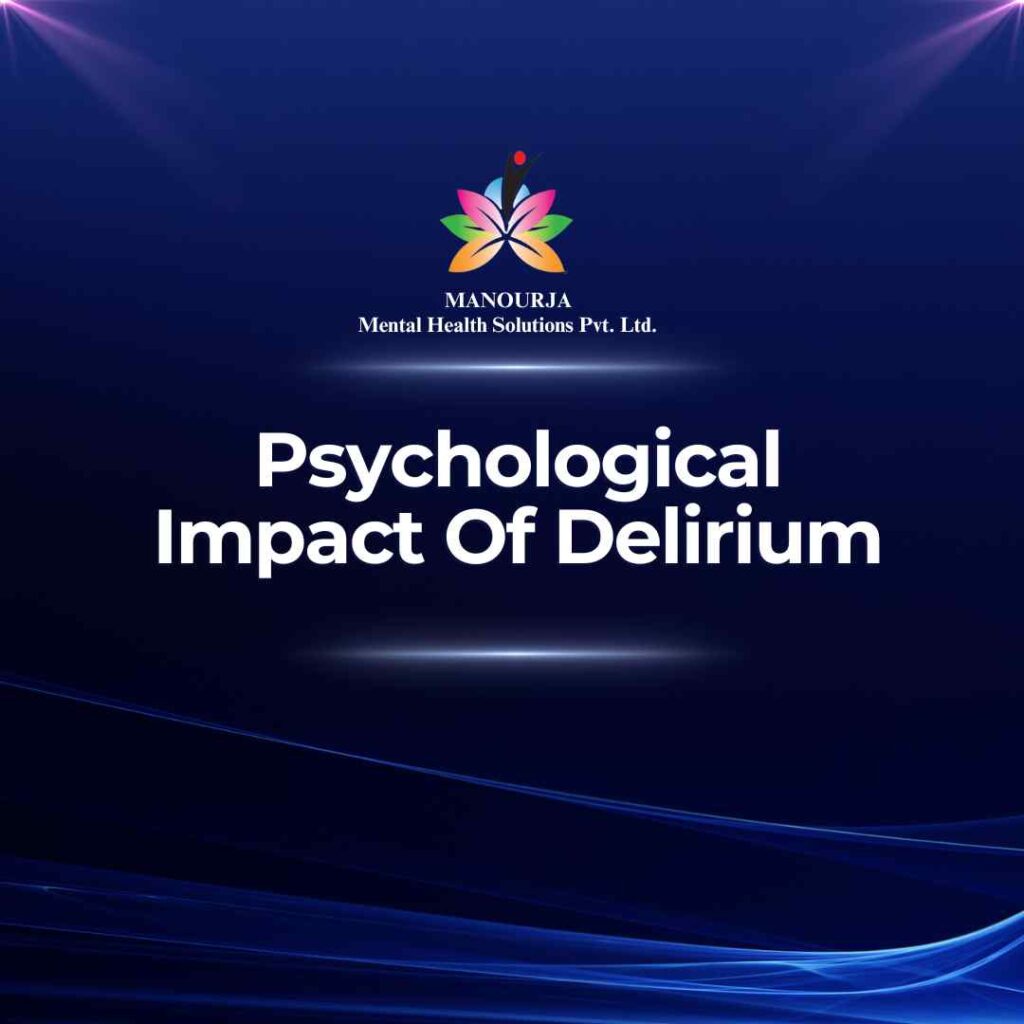Psychological Impact of Delirium

The psychological impact of delirium can be significant and may have lasting effects on individuals who experience this acute state of confusion and altered mental function. Delirium affects not only cognitive functions but also emotional well-being.
Here are some key aspects of the psychological impact of delirium:
- Memory and Cognitive Impairment: Delirium often leads to disruptions in memory and cognitive function. Individuals may have difficulty recalling events that occurred during the delirious episode, contributing to confusion and frustration. This memory impairment can be distressing and affect one’s sense of self.
- Emotional Distress: The disorienting and frightening nature of delirium can evoke intense emotions such as fear, anxiety, and agitation. Hallucinations and delusions experienced during delirium can be particularly distressing, leaving a lasting emotional impact on individuals even after the episode resolves.
- Post-Delirium Syndrome: Some individuals may experience lingering cognitive and psychological symptoms known as post-delirium syndrome (PDS). This can include persistent difficulties with attention, memory, and executive function. Anxiety and depression may also be heightened during this phase.
- Impact on Quality of Life: The psychological aftermath of delirium can affect an individual’s overall quality of life. Functional impairments resulting from cognitive deficits may limit one’s ability to perform daily activities independently, leading to frustration and a sense of loss of control.
- Increased Vulnerability: Delirium can increase vulnerability to subsequent episodes and cognitive decline. Individuals who have experienced delirium may be at a higher risk for developing conditions like dementia, highlighting the long-term psychological consequences of this acute cognitive disturbance.
- Family and Caregiver Strain: The psychological impact extends beyond the individual experiencing delirium to their family and caregivers. Witnessing a loved one in a state of confusion and distress can be emotionally challenging, leading to caregiver strain and potential long-term emotional effects.
Addressing the psychological impact of delirium involves a multifaceted approach
- Supportive Care: Providing emotional support during and after the delirious episode is crucial for individuals and their families.
- Rehabilitation Services: Cognitive rehabilitation services may be beneficial to address lingering cognitive deficits and improve overall mental function.
- Mental Health Support: Individuals experiencing emotional distress or symptoms of anxiety and depression may benefit from mental health interventions, including counseling or therapy.
- Education and Awareness: Educating individuals, families, and healthcare professionals about the psychological consequences of delirium can help in early recognition and appropriate intervention.
Understanding and addressing the psychological impact of delirium is essential for comprehensive care and improving the overall well-being of affected individuals.
At MANOURJA, we believe in the transformative power of counseling. Our experienced therapists offer a safe and supportive space where you can explore your thoughts, emotions, and challenges. Through personalized counselling sessions, we’ll work together to develop coping strategies, build resilience, and achieve lasting positive change. Discover the path to a healthier, happier you with MANOURJA counselling services.
MANOURJA Rehabilitation Services
At MANOURJA, we’re dedicated to helping you in rebuild your life, after difficult times. Our rehabilitation services focus on understanding what you need to move forward, whether you’re recovering from addiction, trauma, or any psychological – social challenges. We create personalized plans, that are all about helping you, regain your strength and find hope again. With a caring team by your side, you’ll have the support to make real progress and take steps toward a brighter, healthier future.
